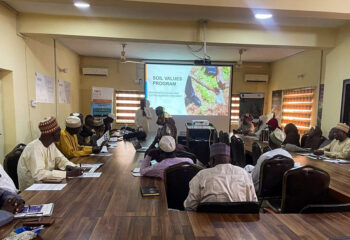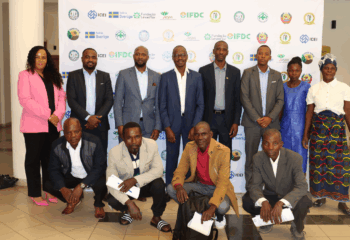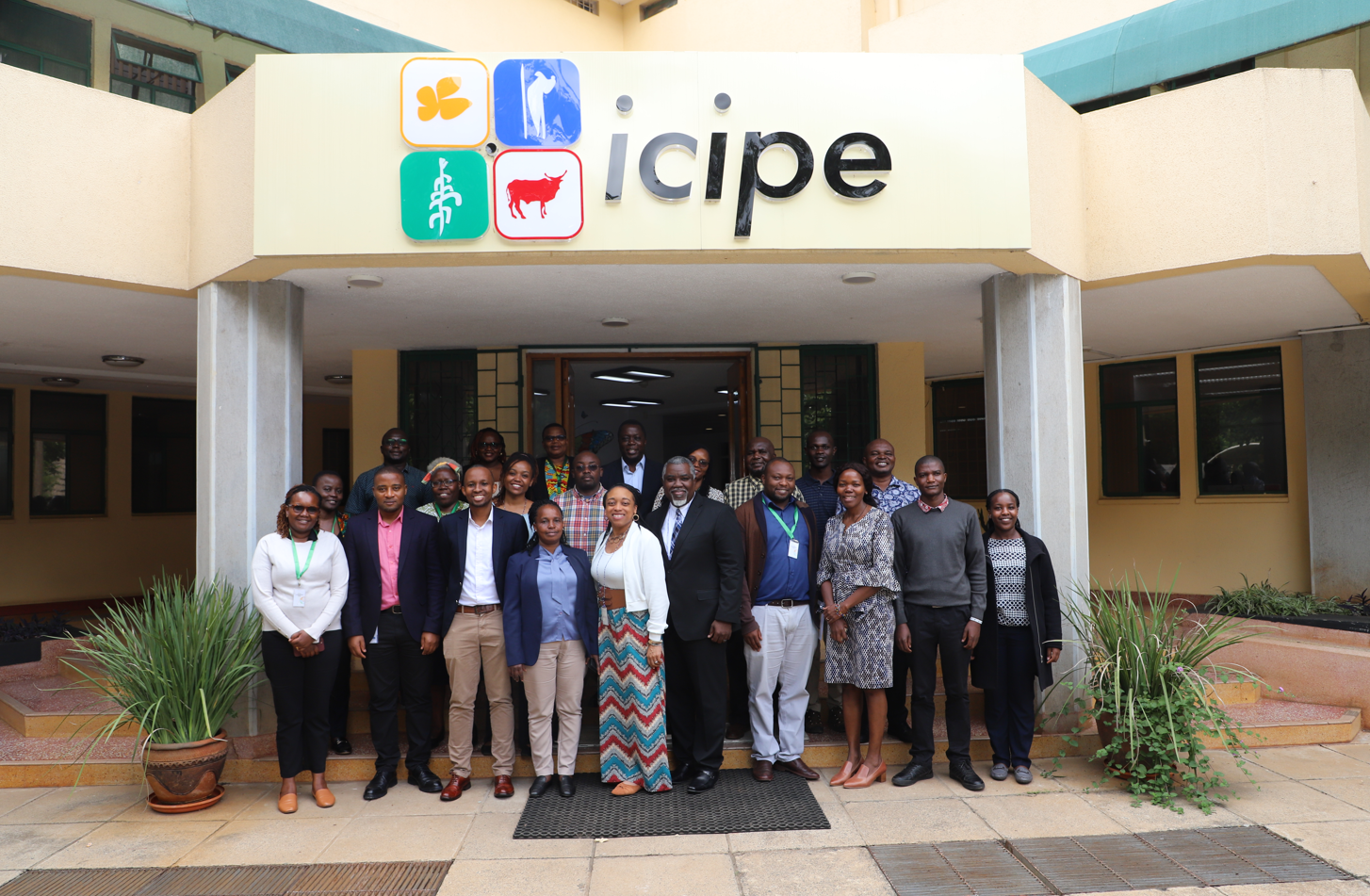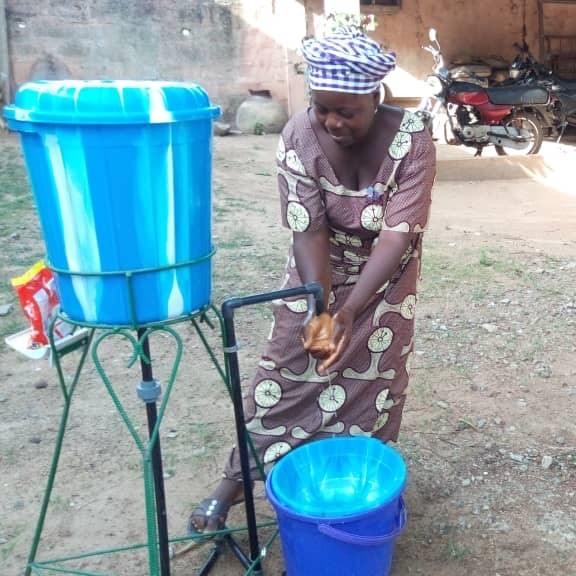
The ACMA2 program, implemented by IFDC in partnership with Care International Benin/Togo and the Royal Tropical Institute (KIT), has adapted its activities to respect restrictions imposed by the Government of Benin to limit the spread of COVID-19. The following two stories demonstrate how the project continues to assist farmers in increasing profits while also protecting themselves and others against the spread of the pandemic.
Cost evaluation of products put in warrantage by ABC actors
Exchange and price evaluation meetings, often organized by the ACMA2 program during warrantage* campaigns, aim to support agricultural economic actors in monitoring price development in the market, setting sales prices, analyzing market opportunities, and making sales decisions. In order to adapt to the government-imposed COVID-19 restrictions, this activity shifted from a large workshop bringing together all the municipalities involved to mini-workshops of just 10 participants. Each mini-workshop includes awareness sessions on COVID-19, implementation of prevention measures, and the provision protective equipment including hand-sanitizing gel, handwashing stations, and masks. The program organized these mini-workshops in all four target departments of Benin. Each workshop began with awareness sessions on COVID-19 and the social distancing and hygienic practices to be followed. Regular hand washing, social distancing, and the use of masks were required during these mini-workshops.
“It was good we had that meeting…We finally understand that sales decisions must be made on time to avoid losses.”
Attendees expressed their willingness to share the information with their neighbors. Alima, a participant in Savè, said: “Before this meeting, I underestimated the disease. But with the training I received, I now understand that [the disease] really exists and that we must preserve ourselves. I will definitely sensitize my neighborhood.”
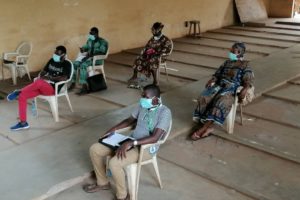
In terms of price monitoring and decision-making assistance during these mini-workshops, agricultural economic actors in the soybean and maize agricultural business clusters (ABCs) worked with various tools on cost assessment of products warrantaged at the end of April and for the next two months to keenly follow the market.
“It was good we had that meeting,” noted one participant. “We will follow the prices and sell as soon as we can achieve a small profit margin. We finally understand that sales decisions must be made on time to avoid losses.”
The participants in the various mini-workshops have decided to follow the market properly and make timely sales decisions to ensure decent profit margins.
Mini-sales group adapts to the contingencies of COVID-19: agricultural actors implement social distancing measures
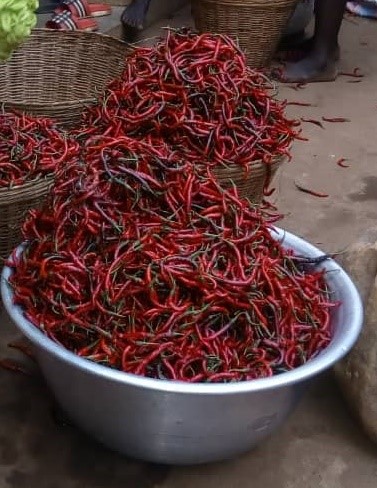
The sunny pepper, a long red chili pepper, has a bright future in Adjohoun, a commune in the department of Ouémé. The sunny pepper, promoted by the ACMA2 program and Africa Green, one of its partner organizations, has withstood the drought in the Ouémé Valley unlike the gbatakin pepper, which is normally grown in the area.
In compliance with the measures introduced to stem the spread of COVID-19, the producers bulked their produce to take it to market through small group sales sessions, where producers bring together their chilies to sell them in bulk and acquire higher prices.
During the first session, producers bulked and sold 112 baskets for 560,000 FCFA (about U.S. $920). During the second group sales session for sunny pepper in Adjohoun, producers sold 169 12-kg baskets at a rate of 5,000 FCFA (about U.S. $8) per basket, a total turnover of 845,000 FCFA (about U.S. $1,350). Together, both sales grossed the producers a total of 1,405,000 FCFA (about U.S. $2270).
Inspired by these sales initiatives and their adaptation to COVID-19, 15 producers, including five women, organized a group sales session of sunny pepper in the same commune of Adjohoun. During this event, 100 baskets of sunny pepper were sold for 600,000 FCFA (about U.S. $987) and 20 baskets of gbatakin round pepper for 180,000 FCFA (about U.S. $296) for a total turnover of 780,000 FCFA (about U.S. $1,283).
Motivated by the success of these farmers, 10 more producers including five women members of the pepper ABC of Adjohoun, teamed up to deliver 51 baskets of sunny pepper at 6,500 FCFA (about U.S. $11) per basket to traders of the municipalities of Adjarra and Dassa (a total turnover of 331,500 FCFA, about U.S. $561) and 12 baskets of gbatakin round pepper at a unit price of 9,000 FCFA (108,000 FCFA, or U.S. $178, total).
Altogether, these small group sales sessions have facilitated the sale of 432 baskets of sunny pepper and 32 baskets round gbatakin pepper for an overall turnover of 2,624,500 FCFA (about U.S. $4,320) for 69 agricultural actors, including 28 women.
*Warrantage refers to short-term agricultural credit (1-9 months) that is guaranteed by a stock of conservable agricultural products (e.g., corn, soy, palm oil, etc.) that will likely increase in value over time. The stock is stored and pledged in a secure, insured warehouse.

